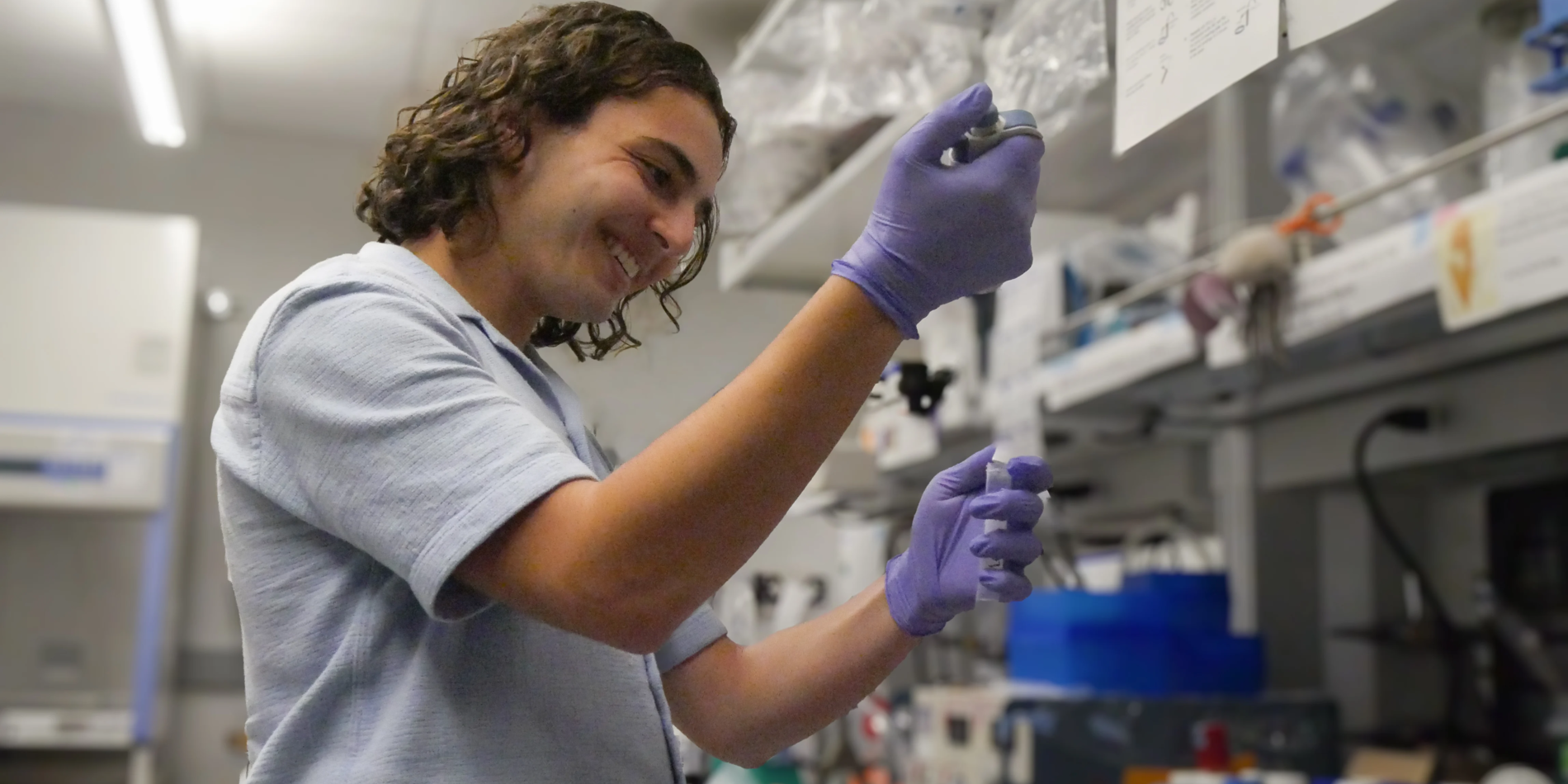Karl Deisseroth on anxiety and heart rate in “90 Seconds with Lisa Kim”
Standing on the edge of a precipice, losing your way in a dark forest or running into a crush will quicken your pulse — a physical consequence of the anxiety you experience. But a new Stanford Medicine study in mice has found evidence of the reverse: A faster heart rate can generate anxiety.
Traditionally, anxiety is treated with benzodiazepines, or anti-anxiety medications, which slow cognition and can be sedating and addictive, explains Karl Deisseroth, MD, PhD, professor of bioengineering and of psychiatry and behavioral sciences at Stanford University. This study gives experts a clue that controlling the heart rate could be a treatment target in psychiatry.
“Now that we have a clue that some of these may be causal, it gives us a whole new array of potential treatment approaches,” said Deisseroth.
Watch the video posted by Stanford Med here. Read more about physical states influence emotions at the Stanford Medicine Scope blog
Karl Deisseroth, MD, PhD, is a professor of bioengineering and of psychiatry and behavioral sciences at Stanford University. He is also a practicing psychiatrist at Stanford with specialization in affective disorders and autism-spectrum disease, employing medications along with neural stimulation.
Lisa Kim is senior manager of media relations for Stanford Medicine. She is an Emmy Award-winning journalist who has covered stories on both the national and local levels.


